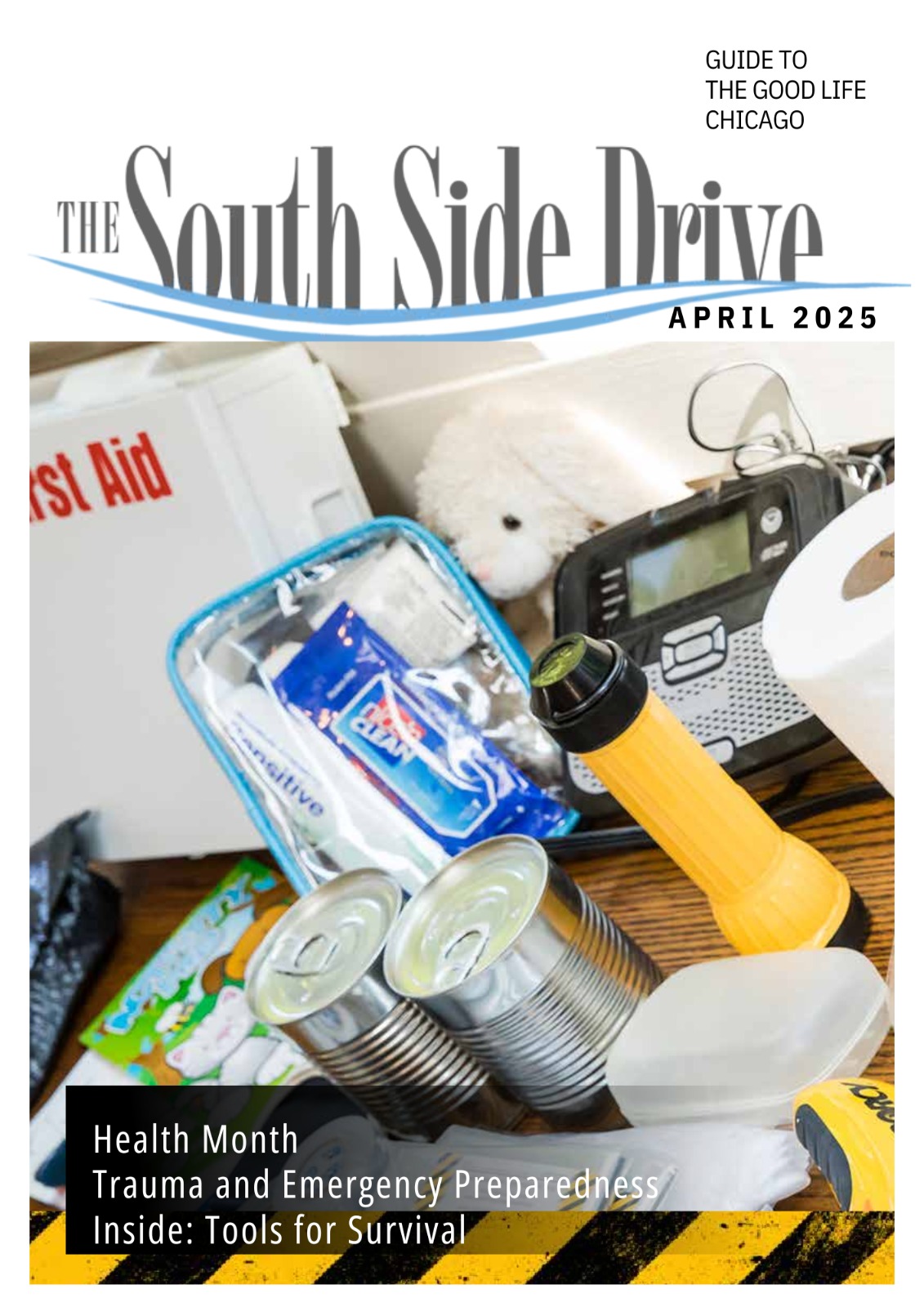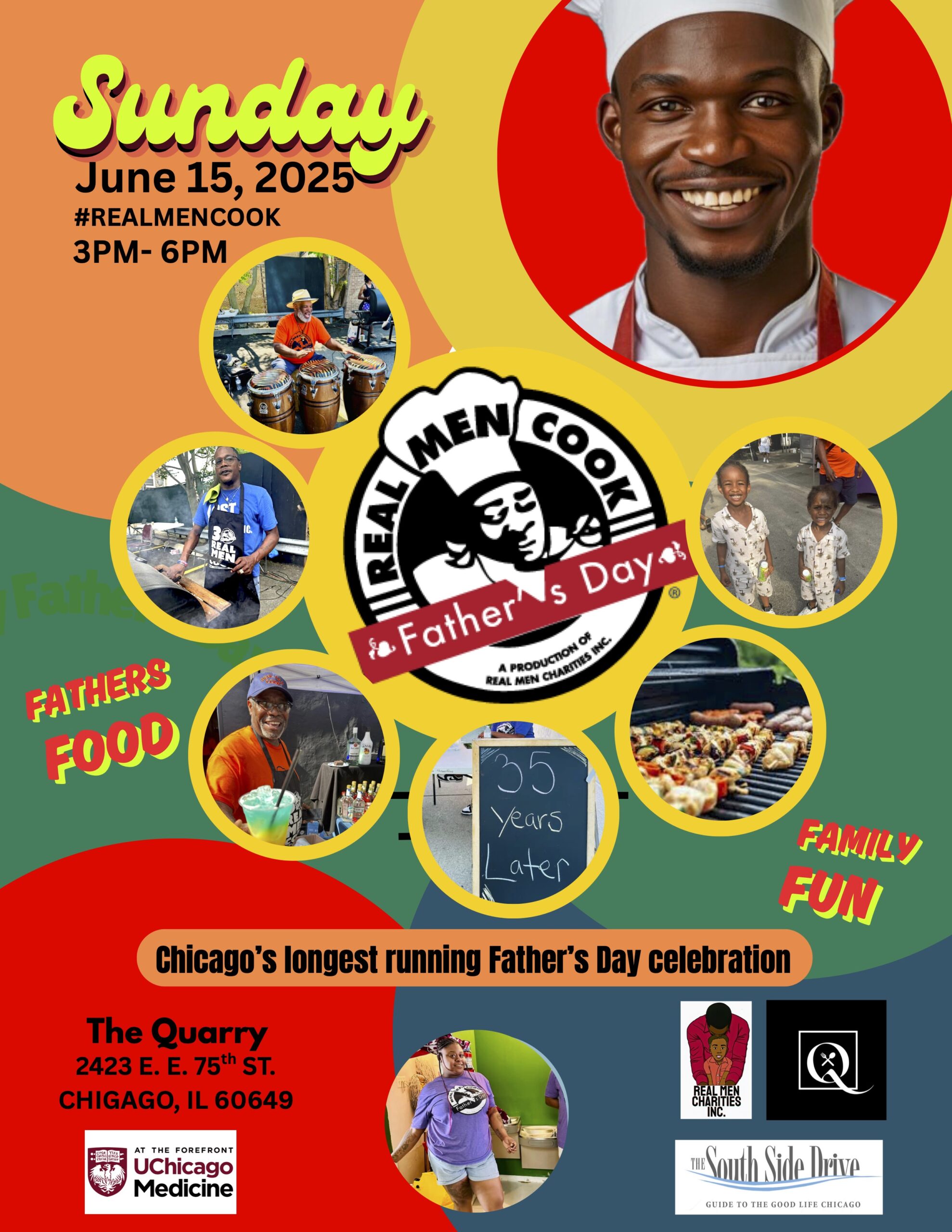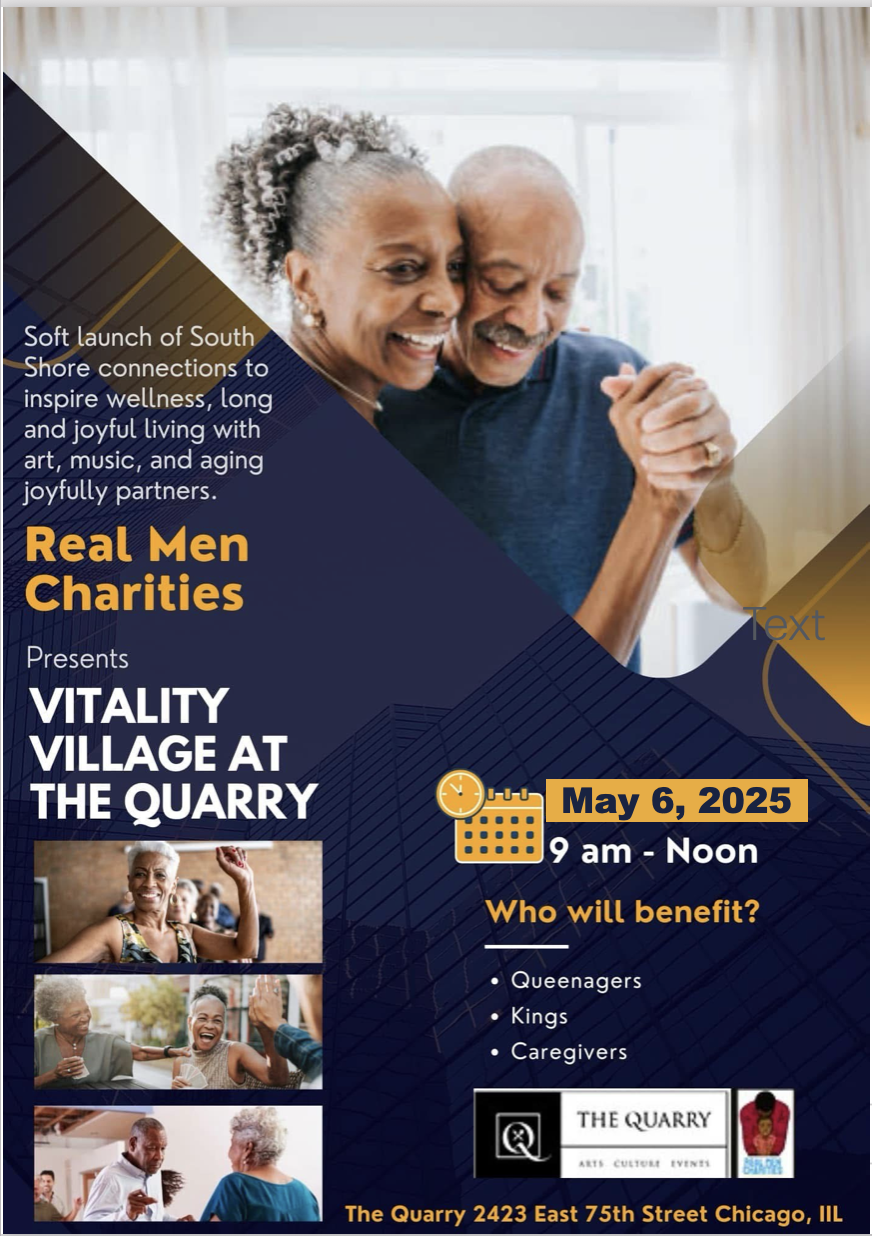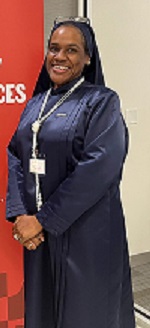
Over one hundred people were shot (11 of them were children) in Chicago during the July 4 extended weekend. Here’s how it was forecast in gangsta rap:
“Bruh, I’ma spin on your block back to back
When they finish it look like the world end (dawg)
I ain’t ask for it, they did it to me (what?)
Niggas exposin’ they hands for free”
They even have a word for the unintended victims, you know who they are: the babies, the children, the women, the senior citizens, the casualties of their mindless war:
“Get caught in the middle, that’s bullseye (get it too)
You got hit but we was targetin’ he (him)
Poppin’ my shit with a capital P (caps)”
That’s it. No remorse. No apologies. Just, “you got hit, but we was targeting him.”
Our children are being taught on a daily basis to call each other niggas, to kill each other, to de-value life, to disrespect women. And this filth is being introduced to their minds through urban, white-owned stations, targeting Black audiences.
However, everyone who is a product of the Hip Hop generation is not a fan or a proponent of this disgusting slime.
Kwabena Sakidi Jijaga Rasuli was in college, writing The Weekly Rap Up, a music column for his college newspaper when he became more aware of the vile lyrics featured in gangsta rap. “We would feature the “Top Ten in Hip Hop” and our top ten would always be conscious but we struggled against NWA, Ghetto Boys kind of music because of the influence of music on our children.” He said.
As a DJ at the skating rink, “Kids would come up to me in the skating rink and ask me to play some nasty tune by 2 Live Crew. I’d say, ‘come on now, I’m not playing that, knowing our history of our wonderful, beautiful music and you want me to play this?”
It was his deep concern about the influence of music on the children that motivated Kwabena to relentlessly do whatever he could do, to meet with whoever he could meet with, to get this “ratchet music” off the air.
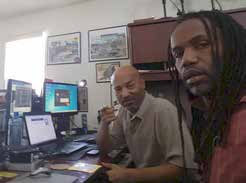
High-profile shootings sparked momentary interest in his petitions. When Tupac Shakur was shot in September 1996, Kwabena was at a conference in Detroit, where he had been circulating a petition for 106 Jams to stop playing negative music. After the shooting was announced, Kwabena recalls, “Everybody in the place signed the petition.”
That same momentary response happened again in 2013 when Hadiya Pendleton was killed and a group protested WGCI. That demonstration led to Kwabena getting together with some like-minded brothers, such as Brother Dwight Taylor, Brother Bernard Creamer, and Sister Terry Delk, and others to form the Clear the Airwaves Project.
The group picketed the stations and eventually decided to also hit the advertisers because that’s who the radio stations make their money from. McDonald’s advertised regularly on the white-owned, Black-targeted stations, so they went to the Black-owned McDonalds, thinking because they were Black of course they would be with the cause. After receiving no positive response from the BMOA (Black McDonald’s Owner’s Association) they demonstrated at the first Black-owned McDonald’s in the country from fall 2013 to fall 2014. The only response was from an owner who was angry because they were demonstrating at his store.
Although there have been noticeably fewer McDonald’s commercials on the stations, McDonald’s has never acknowledged an understanding of the reason Clear the Airwaves is demonstrating. “We want them to stop
advertising with those stations, and give the reason why they stopped so that others will follow suit,” Kwabena said.
When the group began demonstrating against Menards for advertising on Power 92, Menards pulled their advertising for awhile. But they’re back on the air again. “We’ve got to be resilient,” says Kwabena.
They’ve reached out to the Chicago City Council members, to Representatives Bobby Rush and Danny K. Davis, to Kwame Raoul, to Congresswoman Maxine Waters, and to Reverend Jesse Jackson. Minister Farrakhan has had articles published in the Final Call Newspaper about it.
They reached out to a group of 25 preachers out of Gary, Indiana. It took the group three years to get a meeting with them, and after the presentation, Kwabena said, “The only question they had for us was ‘What church do you go to?’ ”

Besides going to the stations, the advertisers, the elected officials, the clergy, the group has also taken their case to the FCC, and told them, “These stations are violating the decency standards, which state that even though we follow First Amendment rules, because our children may be listening
you cannot play indecent or profane content between 6 am and 10 pm. And even after that, obscene content can never be played, ever. And these stations play obscene, vulgar content all the time.” The group brought such a compelling
case to the FCC, with signatures from a Change.org petition drawn up by Kwabena, Bernard Creamer, and Sister Terry, and examples of the raunchy gangsta rap lyrics, that the FCC asked the stations to respond. Although a decision has not been reached yet, regarding iHeart, in the end, the FCC dismissed the case against Crawford-Dontrol, stating they trust that white-owned radio stations to do what’s in the best interest of their Black listeners.
Now, it’s up to the people.
“We desperately need people to help protect our children from these audio pedophiles,” Kwabena says. And he tells us some of the ways people can become involved:
- Monitor what the children are listening to. Monitor what the stations are playing.
- Speak out. Work with movements like Clear the Airwaves Project.
- Call, bombard the stations, bombard the advertisers and let’s organize.
There’s a resolution at www.cleartheairwavesproject.org, and on their Facebook Page. That resolution is pending in New York City, condemning the two killer radio stations. The City of Gary and the Wilmington Delaware City Council passed it. Grab your copy of the resolution and send it to your elected officials, your pastor, and your community organizations.
The National Black Leadership Alliance stands in solidarity with the Clear the Airwaves Project and has released the letter that accompanies this article.
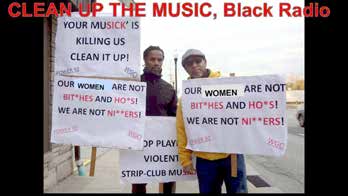
Mary Griffin is a retired teacher and writer. She recently published her memoir, Sankofa.
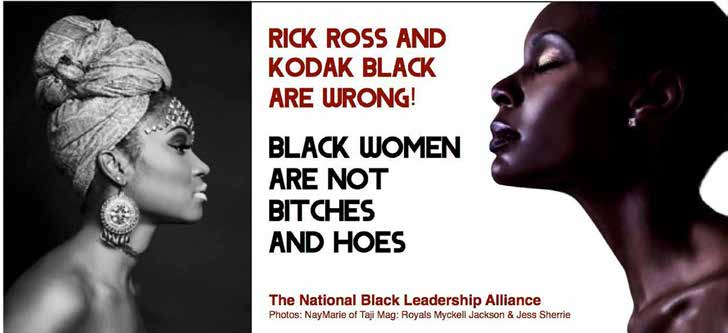
August 1, 2021
National Black Leadership Alliance Open Letter
Nblanow@gmail.com
Earlier this year, the Grammys and the NAACP image awards were given to songs that called for the killing of Black people and the abuse and degradation of Black women. These kinds of songs also remain in heavy rotation on radio stations that target Black audiences like Chicagos WGCI and WPWX as well as New York’s Hot 97 and Power 105. Consider this lyric “ Coupe! Got the missing roof, your boo came up missing too. Poof! I just stole your boo, now ooh she gon’ eat the whole crew.” Or this one “Headshot a nigga ass to see what his mind do. Catch him at a red light or a F***in drive through.”
To understand our concern, it is helpful to understand the emotional, as well as the
political significance and influence of music. It was Confucius, the ancient paragon of Chinese sages who said “If one should desire to know if a kingdom is well governed, if its morals are good or bad, the quality of its music will furnish the answer.”
Music touches us in ways that other art forms cannot, it is not only in the lyrics as noted musician David Byrne and others have explained, it is also the combination of sounds, rhythms, and vocal textures that communicate in ways that bypass the reasoning centers of the brain and go straight to our emotions. Poet Larry Neal, one of the architects of the Black Arts Movement of the 1960’s said “It is indeed the music that can affirm our highest possibilities.” That may be precisely why the best of our music is being removed.
It is also important to understand that in in this society, music conveys social status. Consider the higher level of sophistication associated with opera or classical music, or the level of cool and hip sophistication associated with the music of Coltrane, Monk, and Miles. While we do indeed like the music we also tend to like the company it puts us in. In this sense, the music creates its own community including a lifestyle that is validated by the acceptance of the music. It is the music that validates the “Gangsta.”
When the Chicago-based, Clear The Airwaves Project appealed to the FCC, the commission’s response was that they trusted the white owners of the radio stations to determine what was in the best interest of the Black audience. When the National Congress Of Black Women appealed to Harvey Mason Jr. thinking that a Black man as head of the Grammy committee would make a difference, that he would at least be sensitive to the concerns of Black women, he ignored them.
We doubt that this music would even be considered for a grammy or a NAACP image award if these songs referred instead to any other marginalized group. What if we substitute the negative word “nigga” and inserted a word like “faggot” or “Jew.” Just insert that one word so that the song now says, “My daughter a G, she saw me kill a Jew in front of her before the age of two, and I’ll kill another jew too fore I let another Jew do something to you” or remove the word nigga from this lyric and say instead “I don’t like faggots, I don’t like bit***s, I don’t like nobody (nobody, nobody).”
We seriously doubt that Harvey Mason Jr. or the NAACP Image award committee would condone any such lyrics, nor would the Black program directors like Johnnie D. Glover and Jay Alan at black music radio stations condone and accept such music, it seems that this music is worthy of airplay, recognition, and awards if it clearly only targets Black people.
It seems that it is up to the Black community to take the necessary steps to demand respect. If you are opposed to music that calls for the death of Black people and the ongoing degradation of Black women, TURN IT OFF. If it is being played on any given radio station, TURN OFF THE RADIO. Turn off any source of music that is playing lyrics
that calls for the killing of Black People. TURN IT OFF.

